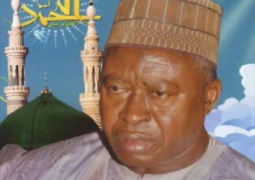The International Centre for Journalists (ICFJ) has yet again taken the bull by the horns by grooming members of the print and electronic media for the challenges of the forthcoming National Assembly Elections slated for 29th March 2012.
The training, which will focus on the role of journalists in covering and reporting on issues relating to parliamentary reporting, followed a similar training for political affairs journalists ahead of the 24th November 2011 presidential election.
Coming at the back of a media capacity building program in The Gambia launched in November 2010 by ICFJ with funding from the US Department of State’s Bureau of Democracy, Human Rights and Labour, the training will take journalists through a thorough grounding in election reporting.
The training is, no doubt, timely considering the fact that there is no better test of professionalism than that faced in the heat and pressure of a bitterly fought political election.
Journalism is an interface between the government and the people. Having such trainings available for them, which has not been the case for quite a very long time, we expect nothing than that for journalists, especially those currently attending the training workshop, to be scrupulous enough to provide citizens with access to all the facts, opinions and ideas being canvassed in the election campaign.
After completing this course, we expect that our journalists will be well prepared to meet head-on the challenges of the heady days ahead.
The point cannot be stressed enough that they must resist with a will the temptation to be biased in their reporting, even though we have seen some lapses during the presidential election.
The people to whom they are accountable need to be well-informed about all the issues at stake, so that they can decide for themselves. Giving biased reports will only do more harm than good to the public, most of whom rely on journalists to know what happens in their society.
A bias journalist is a danger to society, as he or she can inflame tempers by publishing partisan reports.
In the build-up to the March parliamentary polls, journalists must learn to conceal their political affiliation, and stick at all times to objectivity and balance in their reporting.
All political parties must also be given equal coverage, in both the private and public media.
Selective coverage is antithetical to the spirit of good journalism and democracy.
As we always emphasize on this page, journalists should always hold their own against being seduced materially by politicians on the campaign trail. Those who allow themselves to be lured into accepting gifts of money or other valuables bring the entire profession into disrepute.
The same also applies to the politicians. They should allow journalists carry on with their job without enticing them with goodies. They seem to capitalize on the fact that journalists in our part of the world are poorly paid and, therefore, dangle some irresistible carrots before them.
In law, both the giver and the receiver of a bribe are equally culpable.
Thus, the real test of the success of the workshop will be how well journalists acquit themselves on the campaign trail.
Nonetheless, we salute the ICFJ for taking the initiative to enhance professionalism in journalism practice in the country.
“Surely the glory of Journalism is its transience”
Malcolm Muggeridge


